SITREP: I'm Officially Obsessed
Every secret of a writer's soul, every experience of his life, every quality of his mind is written large in his works. - Virginia Woolf
Oh, so much has happened since my last newsletter. Just hours after I hit publish, I was struck down with a terrible bout of food poisoning that eventually landed me in the emergency room. It took about a week, a couple of liters of IV fluids, and some strong antibiotics before I felt like myself again. We still don’t know what I ate that made me so sick, but I keep seeing recalls on everything from bottled water to cucumbers, so who knows? I‘m just happy I’m feeling better.
In happier news, I was invited to my first influencer event. Does this mean I’ve finally made it in this book-reviewing malarkey? The event was held at the Macmillan Audio office in Manhattan. I did some arts and crafts, drank a lot of water, and hesitantly sampled some snacks (I was only a week out from the whole food poisoning incident). I also tried to engage in small talk with strangers (it was only mildly terrifying). The best part of the night was having the chance to try my hand at audiobook narration!
Anyone who wanted to could pick a few lines to read from an upcoming 2026 release (keep reading to find out more about the book). The story revolves around a podcast, and we all got to read lines from different people who called into the podcast. It was so much fun! Who knows if they’ll include my clips in the audiobook, but you know I’ll be shouting it from the rooftops if they do!
I also saw the ABT production of Woolf Works. The stage direction was stunning, and I got teary-eyed when Septimus saw Evans and they danced together. I might do a separate mini-review of the ballet, so keep an eye out for that if you want to hear my thoughts.
Recently Watched:
I managed to watch two of the films I borrowed from the library a couple of weeks ago.
First, I tried watching The Last September (1999), directed by Deborah Warner, while I was ill, but I had to restart it when I felt better. I loved this adaptation of Elizabeth Bowen's 1929 novel. The acting is obviously top-notch—I expect nothing less from a cast featuring such great talents as Maggie Smith, Michael Gambon, David Tennant, Fiona Shaw, and Jane Birkin!
The story takes place in County Cork, Ireland, during the Irish War of Independence. The film follows the Anglo-Irish Naylor family at their estate as they attempt to maintain their genteel lifestyle despite rising political tensions. This tension among the Irish, the British, and the Anglo-Irish caught in the middle is palpable throughout the film. The dashing Captain Colthurst (David Tennant) can’t understand why the Naylors and other Anglo-Irish don’t see themselves as British and seem sympathetic toward the Irish revolutionaries. Families like the Naylors might have British heritage, but they were born in Ireland—it’s their home. Their way of life is quickly coming to an end, but only we, the viewers, know this will be their last September living like this.
While I really enjoyed this adaptation. If you enjoyed Bowen’s novel, I think you’ll enjoy the film.
Sometimes I like to scroll through the films in the Criterion Collection and select something at random to watch. This is how I ended up watching Divorce Italian Style (1961), directed by Pietro Germi.
The basic plot: Baron Ferdinando Cefalù, a Sicilian nobleman, concocts an elaborate scheme to murder his wife, taking advantage of Italian laws that treated crimes of passion leniently, in order to marry his young cousin.
The film aims to criticize Italy’s divorce laws at the time. The strict laws forced people into elaborate schemes to escape their marriages. While divorce was illegal, the system at least tacitly accepted honor killings. Punishments for the dishonored spouse tended to be mild. The Baron goes to great lengths to encourage his wife to cheat on him so he can kill her for cuckolding him. He only gets three years in prison. When he compares it to the lifetime sentence of marriage, it seems like a smart choice. Spoiler: it works, he gets the girl, but it’s far from the happily ever after he envisioned.
Society in the 1960s was changing, creating a clash between Sicily's traditional social codes and modern attitudes, especially regarding marriage, gender roles, and social expectations. It’s darkly funny but quite unsettling. The feminist in me got her feathers ruffled a few times. I kept reminding myself that this is satire and shouldn’t be taken as prescriptive in any way. The film strikes a perfect balance between humor and social critique and even won the Academy Award for Best Original Screenplay. I was surprised by how much I enjoyed it and how many times it made me laugh out loud.
My Year With Edith Wharton:
I’ve decided to do one massive post for Twilight Sleep. I’m nearly done assembling my thoughts and cross-referencing all the literary articles I found. Now, I just have to pull everything together into something coherent. How are you enjoying the read? Did you like Twilight Sleep? Did you hate it? Let me know in the comments.
Be sure to follow along with My Year with Edith Wharton here so you don’t miss a post.
I’m a BookShop.org affiliate! Full disclosure: I will receive a small commission if you order books using my links.
Currently Reading:
Valley of the Dolls (41%): I don’t know if I’m enjoying this book, but I will continue on to see if I can figure out why it was such a hit when it was originally published. But I hate the liberal use of gay slurs. They make me sick to my stomach. And don’t get me started on the overly camp “hey, gee, doll!” overdone 1940s Broadway musical tone to the dialogue. If you’ve read this, I’d love to know what you thought of it.
Middlemarch (32%): I jumped into the
read-along of Middlemarch, and I’m so glad I did. I’m loving this book! I find Eliot’s narrator really funny, and I love how they break the fourth wall and make little quips about life and the characters in this quirky little town. I’m so annoyed with Dorothea for rushing into a marriage with boring old Casaubon!! I can’t be the only one.The Collected Stories of Lydia Davis (38%): I know Lydia Davis has quite a fan base, but I’m not sure her style of short story writing is for me. Whenever I think it’s time to give up, I come across a series of stories that I actually like, which keeps me reading against my better judgment. One issue might be that I’m sitting down to read this like a novel instead of dipping in and out of the collection. This isn’t the type of collection you can mainline. I plan to do a soft DNF and set this aside for a bit. If I don’t return to it by the end of the summer, it’s a sign that I need to let it go and move on to something else from my shelves.
Love and Friendship: And Other Youthful Writings (46%): I finished “Volume the Second” and loved it! Austen’s juvenilia is just so playful and charming! These stories make me smile. I wish we had more examples of Jane playing with her writing. Honestly, I wish we had more from Austen—period.
Recently Read:
In The Rhododendrons by Heather Christle:
“One way people try to fix others into a permanent place is to gather official documents and call the history they write definitive, but paper’s easy to burn. When the British departed from colonies who’d at last won independence, they often marked their leaving with fire, destroying what records they could of the lives they had marred and stolen...Erasing history’ is a charge invariably lobbed at those who want to remove the statues of contentious figures. But taking down a statue isn’t erasing history; it’s revising cultural priorities…Burning documents: now that’s erasing history.”
Lately, I’ve been drawn to memoirs and personal essays where the author reflects on their experiences as well as Woolf’s impact on their lives. And I was eager to read the newly released In The Rhododendrons. I placed it on hold at my library as soon as it was available and was excited to start it. I had finished All the Lives We Ever Lived several days earlier and loved it (keep reading for my thoughts on this memoir). I was hoping to be just as impressed by this one. Heck, Kaveh Akhar calls this “A triumph, an instant classic,” but I think he’s being quite generous in his support of fellow poet and friend Heather Christle. It’s ok, but if you ask me, it’s no triumph.
Christle examines her relationship with her mother and the far-reaching emotional effects of being sexually assaulted as a teenager during a visit to England for her grandfather’s funeral. She weaves together her personal story with Woolf’s life and works. Christle’s mother is a very private and distant person, and this memoir aims to understand her better. The key moment that caused a rift between mother and daughter seems to have been the night of her assault. Christle feels that her mother dismisses her, but her mother has a different view of what happened that night. By writing this memoir and exploring the similarities between Woolf’s life and her mother’s, Christle hopes to heal these long-standing wounds.
So, what’s not working for me in this memoir? While I appreciate all the mentions of Woolf and how the author finds solace in her writing and diaries, I feel like the narrative isn’t as cohesive as I hoped it would be. Christle meanders through time, exploring her own history, her mother’s, and Woolf’s, but never fully commits to a deeper examination. The “appearance by Virginia Woolf” feels unnecessary, and I think it serves as a way for the author to distance herself from her trauma and her mother. In All the Lives We Ever Lived, Katharine Smyth uses To the Lighthouse to explore her relationship with the grief of losing a parent. This adds to the memoir in a way that it doesn’t here (in my humble opinion).
I don’t think this was a terrible book by any means. I always love learning more about Woolf and hearing how she continues to influence readers to this day. And Christle's discussions on mental health, trauma, family, and complex mother-daughter relationships are important and generally well done. I wonder if I would feel differently if I hadn’t read All the Lives We Ever Lived first. I would love to know if any other Woolf fans have read this new memoir and how they feel about it.
Mason & Dixon by Thomas Pynchon:
“The Business of the World is Trade and Death, and you must engage with that unpleasantness, as the price of your not-at-all-assur'd Moment of Purity.”
This brief review won’t do this novel justice, but I will try my best to summarize Mason & Dixon in a way that makes you want to read it!
This postmodern historical novel follows English astronomers Charles Mason and Jeremiah Dixon as they survey the boundary line between Pennsylvania and Maryland in pre-Revolutionary America (1763-1767). The story is narrated by the Reverend Wicks Cherrycoke, who shares this tale with his nieces and nephews in exchange for room and board at his sister's house in Philadelphia. We quickly begin to question Cherrycoke’s accuracy as a historian. How could he possibly know all these details about Mason & Dixon? Pynchon is planting a little seed of doubt about the telling of history. How much has been embellished in the name of a good story, and how much is the truth?
Cherrycoke’s story takes us from the Dutch Cape Colony to Saint Helena to England, and eventually British North America just before the Revolutionary War. Mason and Dixon are surveyors exploring the world, creating order out of chaos through science. Through their adventures, Pynchon weaves a rich tapestry that explores the foundations of modern America and the human toll of progress. Their work, creating what will become the Mason-Dixon line, shows how boundaries serve as tools of power and control, and highlights how colonialism affects both the colonized and the colonizers. Slavery is a constant presence throughout their travels. At first, they don’t seem to have many strong opinions on slavery; it’s just a part of the world. But as they travel and see the effects of the slave trade, their eyes are opened to its horrors.
Oh, did I mention there’s a cheeky mechanical duck, a talking dog, and a werebeaver? I can’t forget them!
This isn’t my first rodeo with Pynchon, but so far, this is my favorite. I honestly don’t understand how Gravity’s Rainbow is considered his masterpiece when this is in his oeuvre! From the execution of an eighteenth-century prose style to the exploration of science, colonialism, slavery, American exceptionalism, manifest destiny, and the Age of Enlightenment, this book is flawless. Above all, it’s a pleasure to read!
I think it’s best to dive into the story and let it wash over you. Enjoy all the quirks of a Pynchon narrative: magical realism, bizarre characters, and, of course, the songs! When you’re done, you can take some time to delve into reviews and the Pynchon Wiki to gain a deeper understanding of everything he is doing. This man is a mad genius. If you’ve never read him, be brave and give him a try.
Constant Reader: The New Yorker Columns 1927-28 by Dorothy Parker:
“They can organize and run Book Weeks, at popular department stores (to some ways of thinking, if the world were anything near what it should be there would be no more need of a Book Week than there would be of a Society for the Prevention of Cruelty to Children)...”
In 1927, sharp-tongued Dorothy Parker became a book critic for The New Yorker. She was already well-known for her wit, her drinking, and for being a charter member of the Algonquin Round Table. Constant Reader is a collection of her complete weekly New Yorker columns centered around books, people, and the trials and tribulations of book reviewing. The columns are humorous, cutting, and filled with Parker’s signature wit. They’re a joy to read, and I found myself chuckling out loud at her many quips about her contemporaries and their works. For example, she really had a bug up her butt about Winnie the Pooh. She had a nearly pathological dislike for the poor bear. Meanwhile, she heaped praise on writers like Hemingway.
I’m so glad McNally Editions republished her columns in a single edition. This was an absolute delight to read, and I wish I could develop a unique reviewing style with half of Parker’s wit and charm. I have an old paperback copy of The Portable Dorothy Parker on my shelves, and I wonder if I will enjoy her short stories as much as I enjoyed her columns. If you have a favorite Dorothy Parker quote, drop it in the comments so we can all have a good laugh.
Someone at a Distance by Dorothy Whipple:
“She had learnt to wait for the changes and the help that life brings. Life is like the sea, sometimes you are in the trough of the wave, sometimes on the crest. When you are in the trough, you wait for the crest, and always, trough or crest, a mysterious tide bears you forward to an unseen, but certain shore.”
I’ve now officially read all the Persephone Books in my collection.1 I will eventually add more Dorothy Whipple’s books to my Persephone collection. I first heard about her from watching
, who raves about Whipple’s books. I’m so glad I listened to her recommendation, because Someone at a Distance was simply wonderful. I have a new mid-century favorite to add to my growing list.Published in 1953, Someone at a Distance is a domestic novel that skillfully explores the breakdown of a seemingly perfect marriage. We follow the North family: Ellen, Avery, and their two children, Anne and Hugh. Upon meeting the Norths, we are introduced to Avery’s rather domineering mother. One day, Mrs. North decides to hire a young French woman named Louise to be her companion, as her son and his family are too consumed by their own lives to spend time with her. Mrs. North and Louise grow quite close, and after Mrs. North passes away, things begin to unravel for Avery and Ellen.
Louise is a manipulative schemer desperate to prove to her small town that she’s better than they think she is. She’s also fixated on making her former lover, Paul, jealous to get back at him for marrying someone else. Louise is the harpy who will single-handedly destroy a seemingly strong marriage. Avery falls victim to her charms, causing everyone’s lives to spiral out of control. Meanwhile, good, faithful, and honest Ellen North does her best to hold things together for her children. Despite having her world shattered, she remains remarkably resilient and learns to rebuild her life on her own terms.
Whipple’s characters are so vividly depicted that they leap off the page. Someone at a Distance is a masterpiece of domestic realism that showcases Whipple's exceptional ability to analyze human relationships and social dynamics. I especially appreciate how the secondary female characters support Ellen in overcoming this tragedy. While Whipple examines the fragility of happiness and the intricacies of human nature, she also emphasizes the resilience of the average British housewife. Like Ellen, they rise to any challenge. Meanwhile, Avery is susceptible to the slightest flattery from a pretty woman and is willing to throw away the life he has built for a moment of fun. I absolutely loved this and need to figure out which Whipple to read next!
Virginia Woolf’s A Writer’s Diary:
“The way to rock oneself back into writing is this. First gentle exercise in the air. Second the reading of good literature. It is a mistake to think that literature can be produced from the raw.”
To literally no one’s surprise, I loved this!
I need to dive into volume one of Woolf’s complete diaries to see these entries in their original context. I was hesitant that I wouldn’t enjoy a curated collection of diary entries, but it was wonderfully done. The entries focus on her writing, her process, her mental struggles, and her disappointments. I find her quite charming and vulnerable. For every new book she finishes, she writes about her worries regarding what Leonard will say, despite Leonard loving basically everything she writes. Even when he has critiques, they’re rarely scathing. If you’re a Woolf lover and you haven’t read her diaries (in any form), you must!
The only thing that upsets me after reading this is knowing I’ll never get the Chance to meet her. The more I explore Woolf’s life and works, the more I want to know her as a real, breathing person. Instead, I have to be content spending my days going through her works, diaries, and biographies. Hopefully, this will allow me to catch a fleeting glimpse of the real Virginia.
All the Lives We Ever Lived: Seeking Solace in Virginia Woolf by Katharine Smyth:
“And I sometimes feel that To the Lighthouse, with all of its thrashing and mumbling, all of its false starts and pedestrian insights, all of its saying things poorly and waving in the general direction of truth, has actually nailed it. To grieve is to be floored, again and again, by a series of epiphanies that, put to paper, sound painfully banal.”
As you’ve already surmised from my comments about In the Rhododendrons, I loved this memoir. I want to give a huge thank you to
for recommending this book to me. I don’t know if I would have heard of it otherwise. Thank you! Thank you! Thank you!All the Lives We Ever Lived beautifully weaves together an exploration of grief over a parent's death with literary analysis of To the Lighthouse. I loved how Smyth examines the ways literature can help us understand and process grief, particularly the loss of a parent. Smyth and Woolf both explore what it means to lose someone you loved, our memories of those we’ve lost, and how those memories evolve with our growth and understanding as time passes.
Smyth has a complex relationship with her father and his legacy. He struggled with alcoholism and later fought cancer. Her memoir combines joyful, sun-dappled sailing memories with the struggles of having an alcoholic parent. She has a lot of emotional baggage to unpack, leading her to turn to Woolf’s writing as her emotional guide, helping her see grief from a new perspective. This isn’t just a touching memoir about a complicated father-daughter relationship; it’s also a deep literary analysis of To the Lighthouse. Smyth skillfully blends scholarly analysis with personal reflection, creating a truly unique memoir. Her love for Woolf shines through in her deep understanding and appreciation of To the Lighthouse. You will walk away with a greater understanding of the novel and an appreciation for Woolf’s genius.
God, I loved this so much. If you love Woolf, are dealing with grief, or simply want a good memoir, please pick this up!
The Lover by Marguerite Duras:
“The story of my life doesn’t exist. Does not exist. There’s never any center to it. No path, no line. There are great spaces where you pretend there used to be someone, but it’s not true, there was no one.”
I first learned about Marguerite Duras while reading Committed: On Meaning and Madwomen by Suzanne Scanlon. I mistakenly thought The Lover would be a “mad woman” story. Instead, I discovered a beautifully rendered autofiction about a young woman coming of age in 1929. The Lover tells the story of a young French girl's sexual awakening in colonial French Indochina. We follow a 15-year-old girl who begins a forbidden relationship with a wealthy Chinese man twelve years her senior. Despite being an extremely slim novel, Duras crafts a rich story that explores complex themes of colonialism, adolescent sexuality, complex dynamics, the fluidity of memory, and even the essence of writing and storytelling. I love a short book that packs a punch!
Our unnamed narrator navigates a troubled family life marked by a volatile relationship with her mother and a mentally unstable older brother. The family is deeply dysfunctional, complicating her struggles with poverty and her emerging sexuality. The young girl is fierce, vulnerable, and determined to be independent. She finds safety in her relationship with her Chinese lover. Although the age gap is uncomfortable, their relationship didn’t feel lecherous to me. Our lovers face societal ostracism for various reasons. Despite being wealthy, the Chinese lover is marginalized because of his race. In contrast, our protagonist is poor but has more social status simply because she is French. Through these lovers, Duras explores the complexities of colonial and sexual politics during this period.
I read this one day on the train to and from New York City, and after journaling about it, I realized I need to reread it with a pen in hand. My first read only scratched the surface; I need to explore this masterpiece more deeply. I’ve also added Duras to my long list of women writers to include in my biography commonplace book. If you have a recommendation for the next Duras novel I should read, please drop it in the comments.
Family Lore by Elizabeth Acevedo:
“How do lineages of women from colonized places, where emphasis is put on silent enduring, learn when and where to confide in their own family if forbearance is the only attitude elevated and modeled?”
Family Lore is my viewer’s choice read for May, and I plan to have the reading vlog edited and posted (hopefully) this week.2 I won’t spend too much time discussing the book here since a vlog is coming, but I’ll give you a quick overview.
Family Lore is a multigenerational saga that follows the lives of four Dominican-American sisters and their extended family. While the narrative shifts among all the family members, our main point of view is Flor, the second eldest sister, who is planning a celebration of her life while she’s still alive. Each of the women in this family has a unique gift. For example, Flor is a seer of death. When she announces her intention to throw this celebration of life, the family is on edge, wondering if Flor has foreseen her own impending death or that of another family member.
As preparations are underway for Flor’s celebration, we meet each family member, both past and present. We learn their stories, explore their traditions, and recall shared memories passed down through the family. Acevedo beautifully examines how women shape and maintain family identity across generations. The women in this family are strong and fiercely protective of one another, but they also have conflicts with each other and have secrets they keep. It’s a raw and honest look at matriarchy.
This is Acevedo’s first adult novel and a refreshing departure from her earlier works. I’ve read several of her young adult novels written in verse, and I love them. Family Lore is written in rich, lyrical prose, showcasing her talent as a poet. She skillfully handles multiple perspectives and timelines. This could have easily turned into a confusing jumble of stories, but Acevedo weaves these elements into a deep exploration of cultural identity and family dynamics. I really enjoyed this, and I hope she writes more adult novels.
Publisher Mail:
Thank you to all the publishers who sent me books for spotlight and review.
Ordinary Love by Marie Rutkoski (Out now from Knopf):
Despite appearing to have it all, Emily’s marriage is falling apart, her relationship with her parents is chaotic, and she has never truly moved on from the girl who got away. Then, one day, she unexpectedly encounters the high school girlfriend, who shattered her heart. Gen is now a celebrated athlete, a stark contrast to the girl Emily once knew. The two have a second chance at romance, but can Emily trust her again? Can they forgive one another for their past mistakes? Will Emily jeopardize her marriage to reignite things with Gen? It sounds like the perfect read for lazy summer afternoons on the deck. I bet this will make me cry.
The Royal Free by Cark Shuker (Out now from Counterpoint Books):
An exuberant dark comedy about dying young, parenting through grief, and the absurd hilarity of copyediting a medical journal while the city around you burns. Equal parts workplace comedy, home invasion thriller, and literary puzzle, The Royal Free offers a lament for the unbearable and nearly unspeakable nature of a death that comes too soon. The summary gives me Ricky Gervais in After Life vibes. I tend to really enjoy dark comedy, so here’s hoping I like The Royal Free.
Fresh, Green Life by Sebastian Castillo (Out June 24, 2025, from Soft Skull Press):
Another dark comedy (I must be in the mood). This time, we follow a young writer, Sebastian, who, after spending a year in self-imposed exile, decides to reconnect with life by attending a New Year’s Eve party. Sebastian’s former philosophy teacher hosts the party, which serves as a reunion with his cohort a decade after graduating. “What follows is an inexplicable series of fascinating events charting the erosion of young, bookish hope.” Is this dark academia meets dark comedy? If it is, I think this is going to be amazing.
Curandera by Irensosen Okojie (Out July 8, 2025, from Soft Skull Press):
Set between seventeenth-century Cape Verde and contemporary London, Curandera is a vibrant story of rebirth and redemption, and a mythic tale of transformation across time. The novel explores the darker aspects of shamanism, desire, and friendship. I’m very curious to see how this dual-timeline story will unfold. And come on, that cover is STUNNING!
Among the Burning Flowers by Samantha Shannon (Out September 16, 2025, from Bloomsbury):
I loved The Priory of the Orange Tree. I remember listening to it on my way to and from work at the start of the pandemic. This intricate and vibrant world, filled with dragons and some of the most fascinating and powerful women in fantasy fiction, helped me get through some of the worst moments of that first wave. So, I was over the moon when Bloomsbury offered me an ARC of the next installment in this world.
With the awakening of fire-breathing dragons, Among the Burning Flowers introduces the first sparks of danger that threaten to engulf the world of The Priory of the Orange Tree. I can’t wait for Samantha Shannon to finish all the books in this world so I can read them chronologically (she’s publishing them as standalones and moving around through time). I can’t wait to be back in this world!
This Story Might Save Your Life by Tiffany Crum (Out March 10, 2026, from Flatiron Books):
What if one of the hosts of My Favorite Murder were killed, and the other host was suspected of committing the crime? That’s essentially the setup for This Story Might Save Your Life. Best friends Benny and Joy host one of the most beloved podcasts in the world, where they discuss “against all odds” survival stories. They have throngs of adoring fans, and everything is going great for the pair until the day Joy disappears, and Benny is accused of her murder. This won’t come out until 2026, but I was kindly sent an early copy as a thank you for attending the MacMillan Audio event and recording a few lines for the audiobook. Now we have to wait and see if my lines make the final cut!
Something to Watch:
I’ve been engrossed in this five-part docu-series on YouTube about the rise and fall of SoulCycle. So much so that I haven’t had time to watch anything else that might interest you, my dear readers. Therefore, I will shamelessly plug my recent Summer Reading List video because it’s finally feeling like summer here in New York, and it’s my newsletter, so I can plug whatever I want .
It goes without saying that I failed miserably at the 1000 Words of Summer Challenge. We’ll try again next year!
I can’t believe it’s almost the end of June! This summer is flying by! What’s one book you’re hoping to read this summer? I’m trying to finish Middlemarch. Otherwise, I want to get back on track with writing posts, filming, and keeping up with my Year with Edith Wharton project. I’m feeling very behind on everything.
Before I wrap up this SITREP, I want to say I know times are tough and honestly frightening right now. We’re spiraling toward WW3; people are being kidnapped off our streets, and we’re anxious about what will happen next. I can’t stop what's happening (even though every fiber of my being is screaming “MAKE IT STOP”), but I hope we can find moments of joy to help us get through. Maybe it’s reconnecting with someone you haven’t seen in a while, going for a hike (leaving your phone at home), or simply diving into a book or movie you love. Whatever it is, it doesn’t matter. What matters is that we don’t let all joy be taken from us. There are still good things — we just need to make the effort to focus on them and not the infinite doom scroll. We need the joy to refuel us so we can keep fighting this administration!
And with that, I will say goodbye for now. I hope you’re all doing well. Happy reading!
SITREP is a free (nearly) weekly newsletter about books and things. If you want to support my work, consider becoming a free or paid subscriber. You can also like and share this post with your friends.
Thank you for reading. See you next week!
It wasn’t difficult. I only have four books from this publisher.
I’ll update with a link once it’s published if you want to watch it!


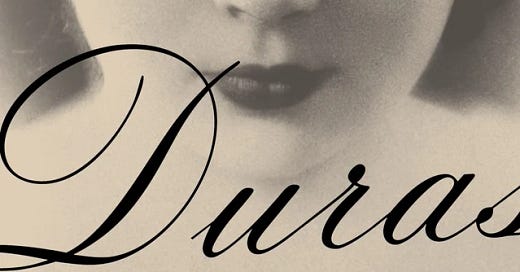



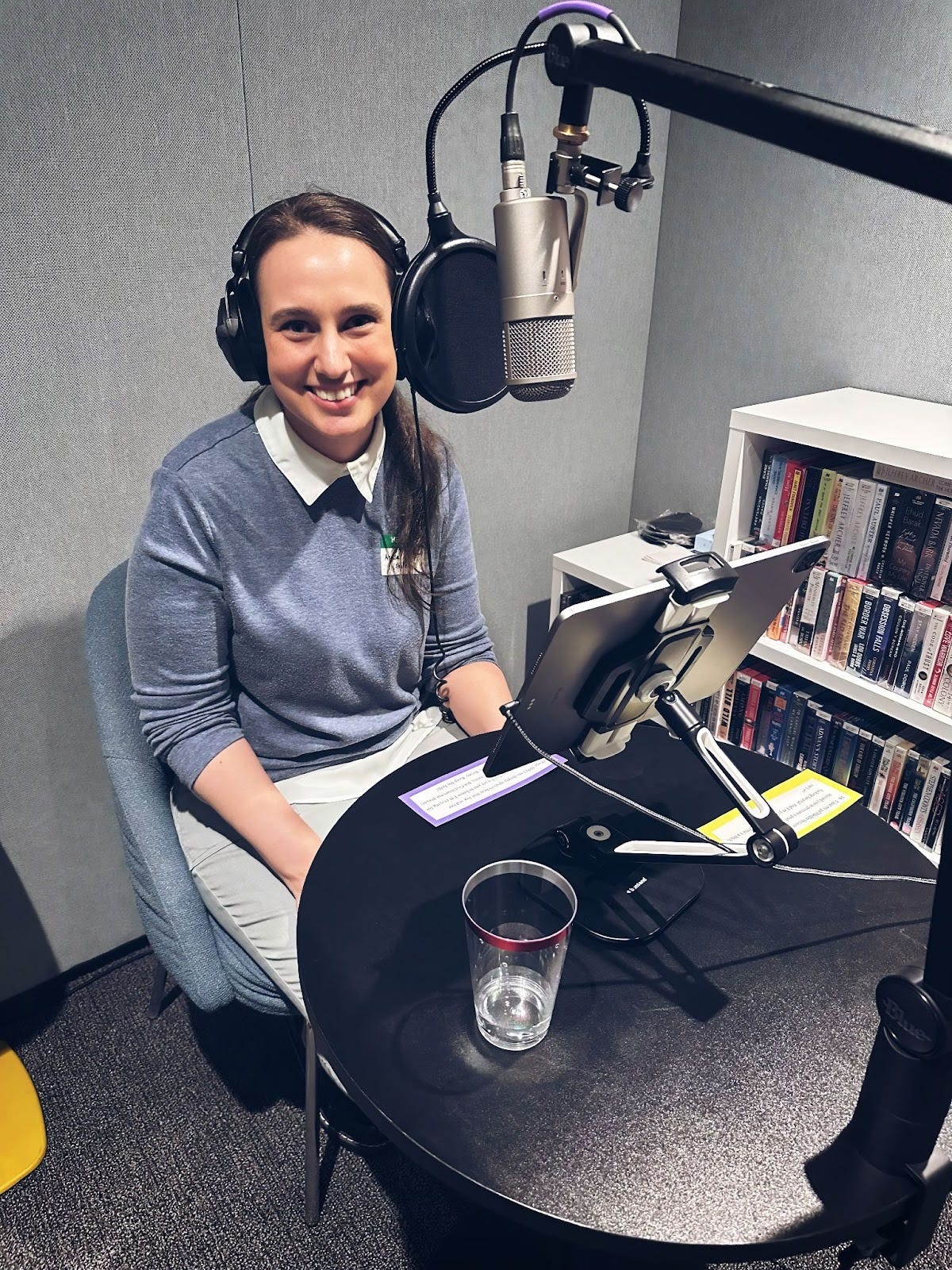

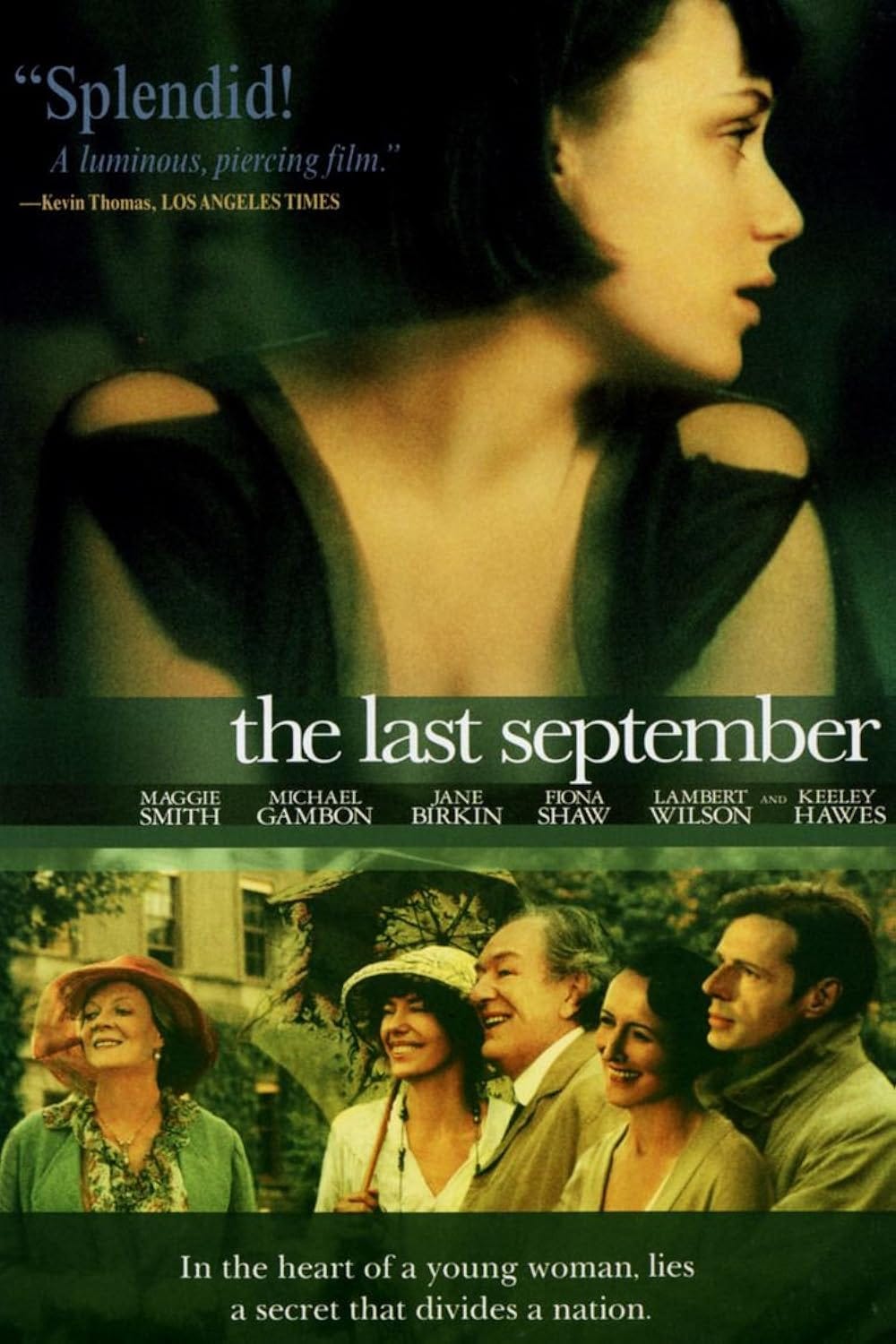

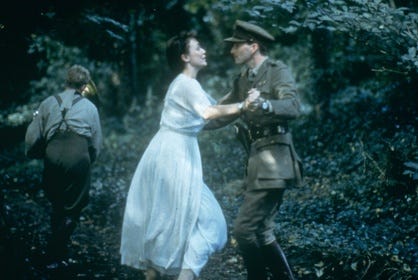


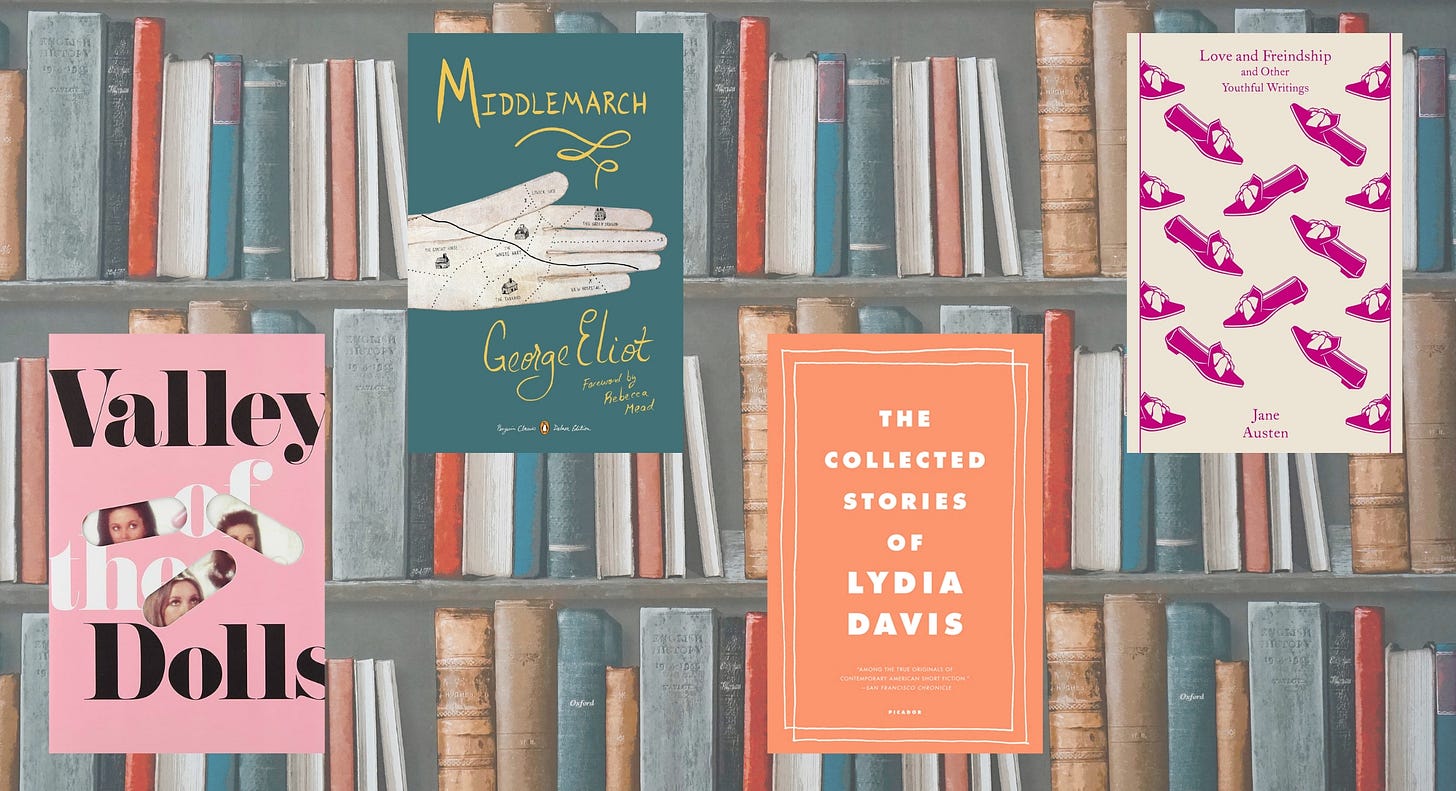
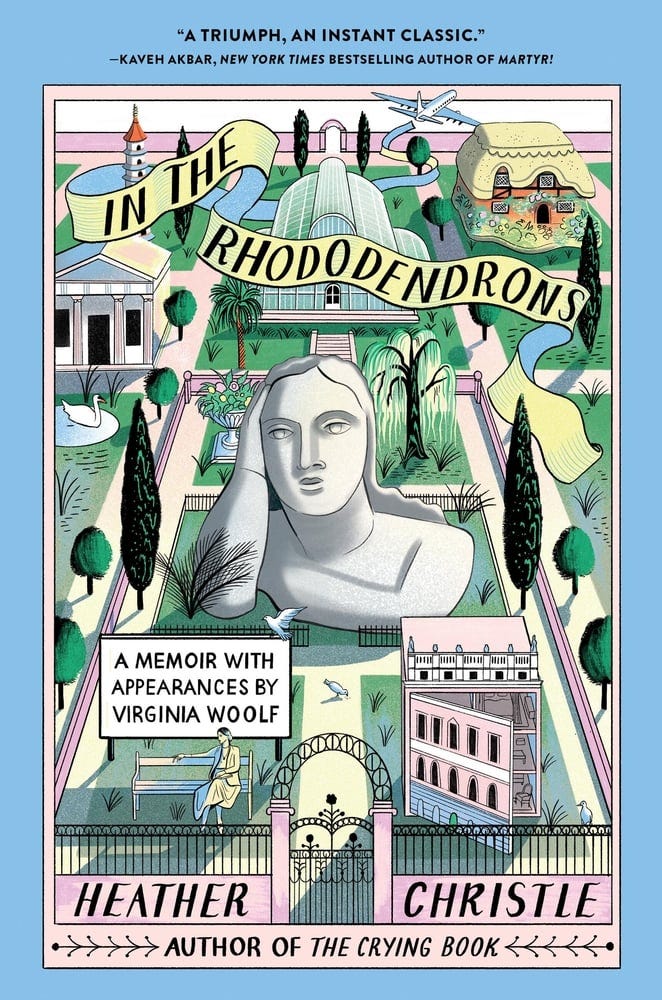
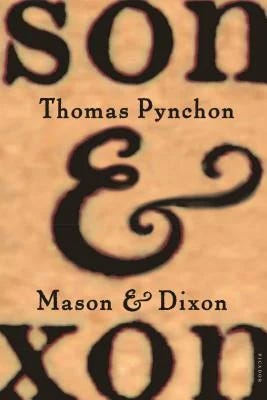
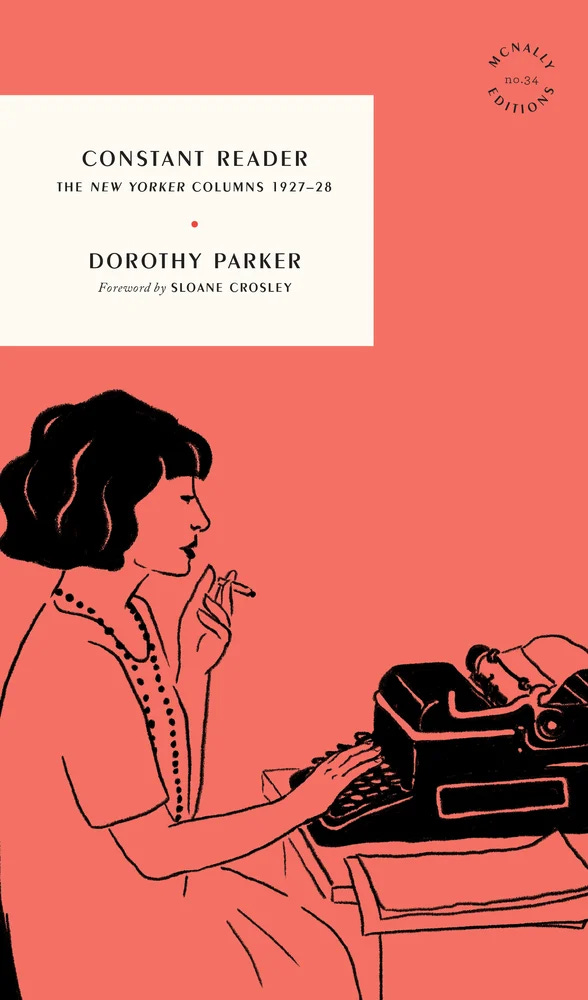
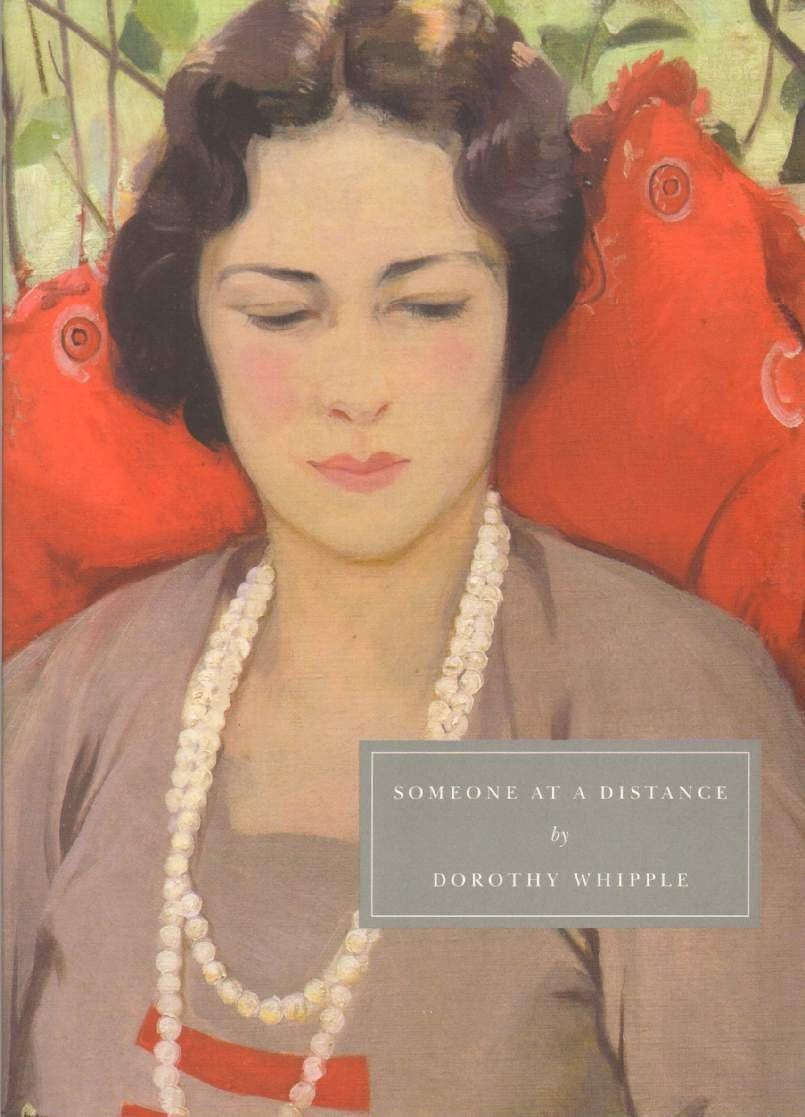
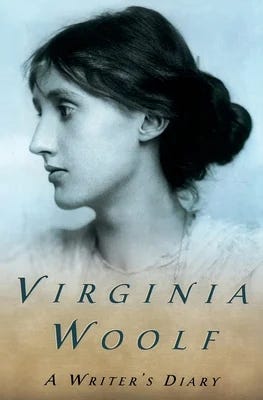
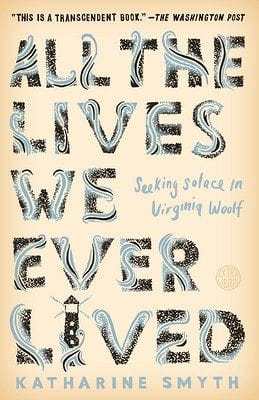

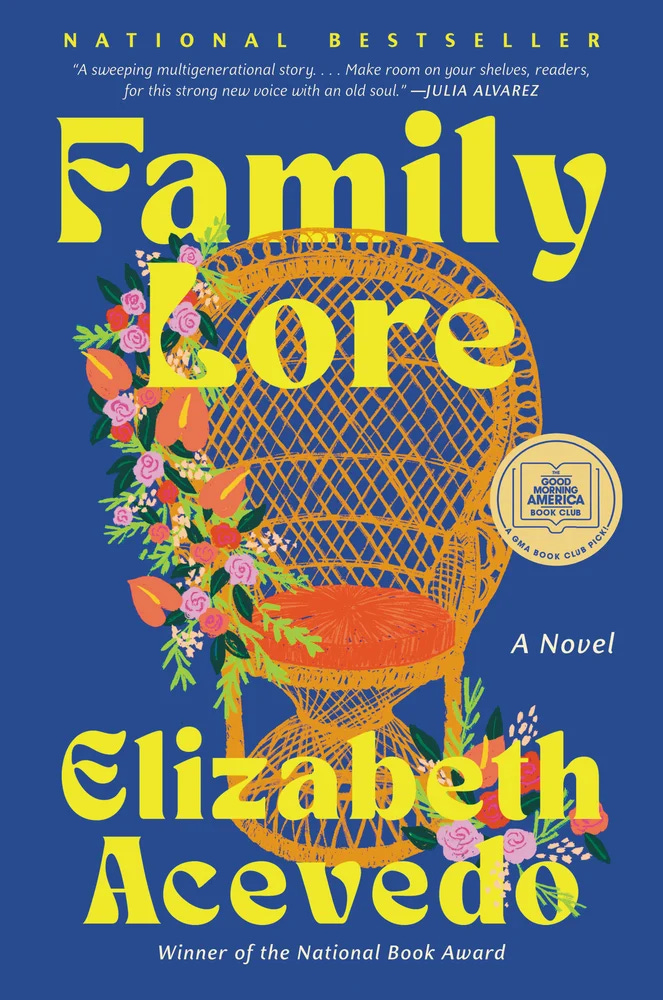
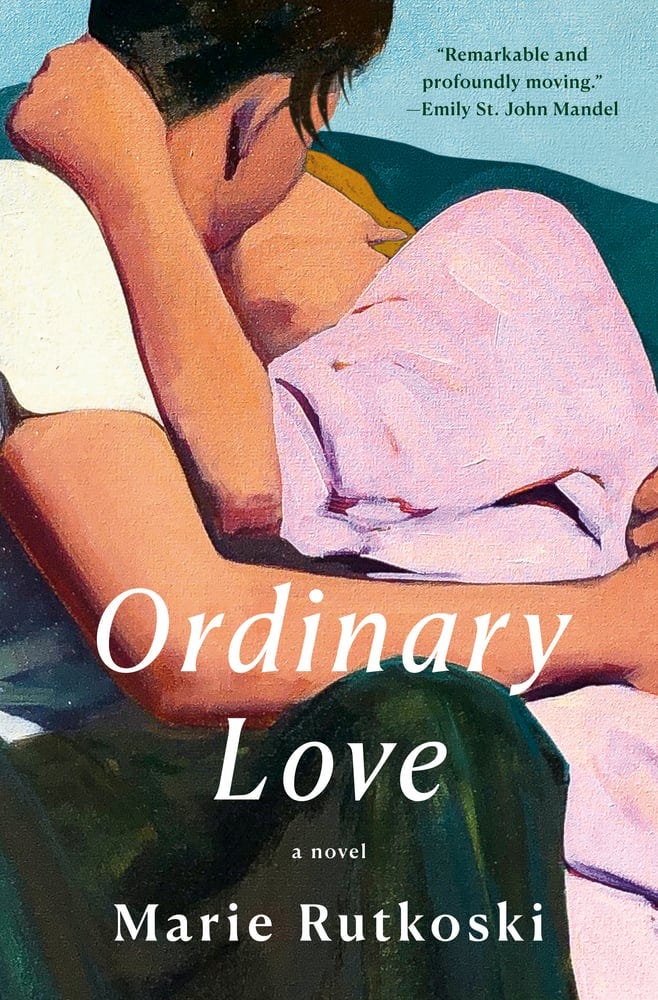
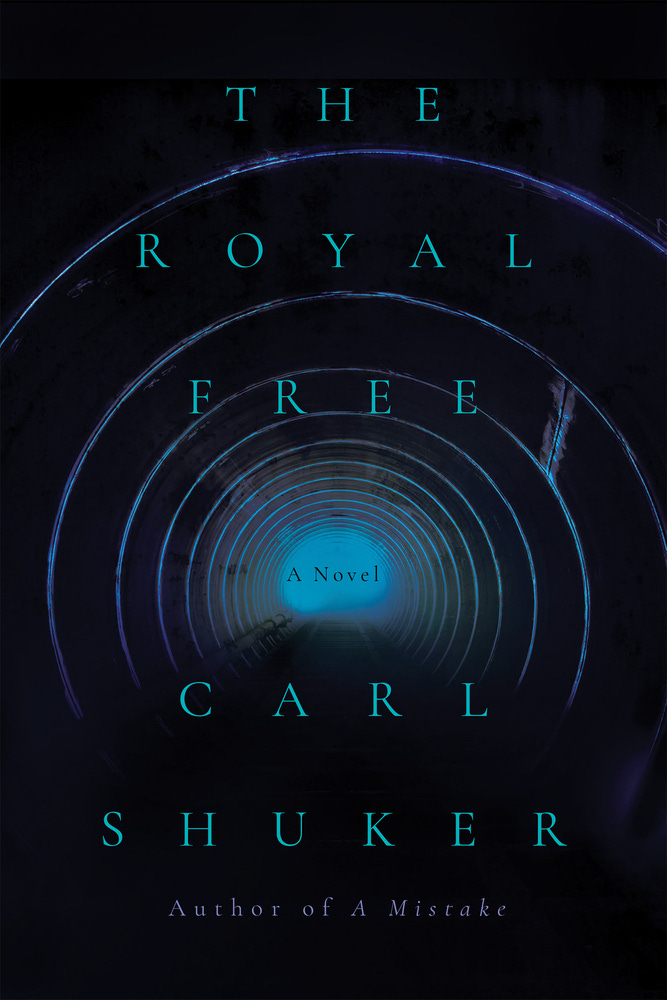
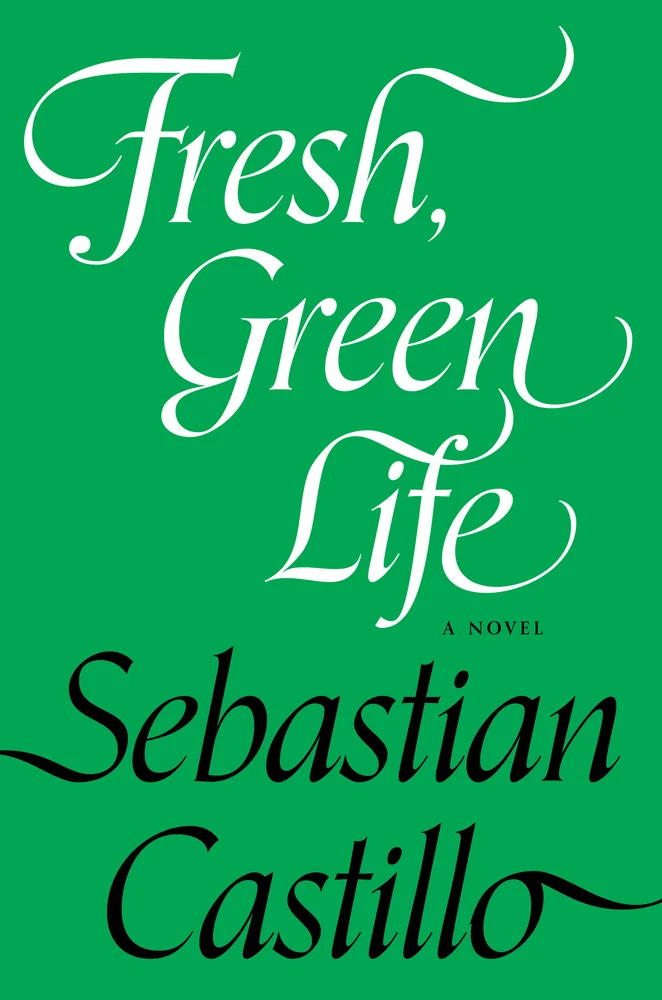
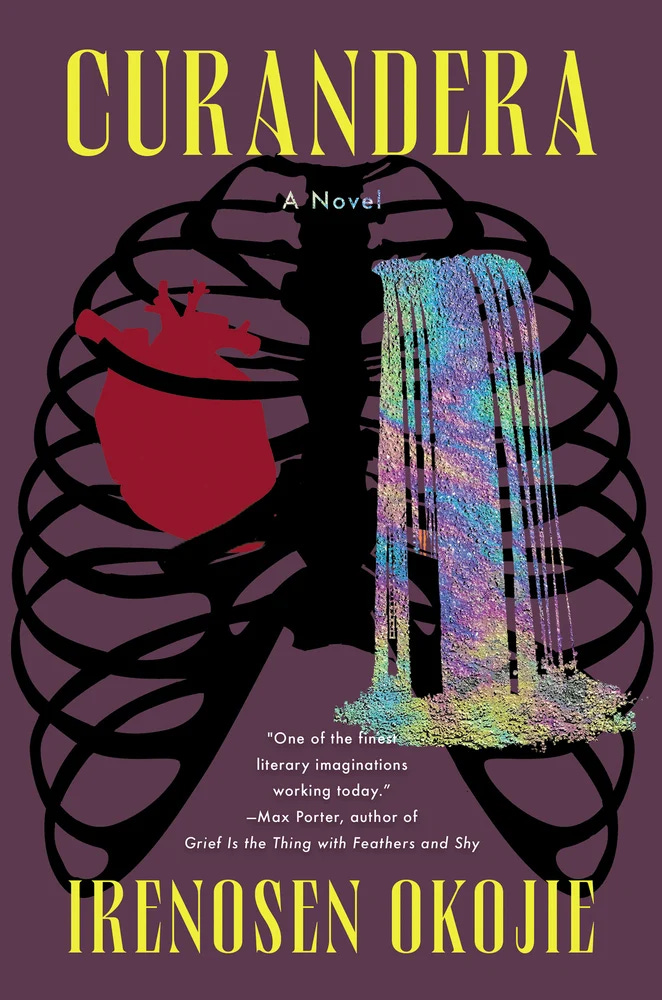
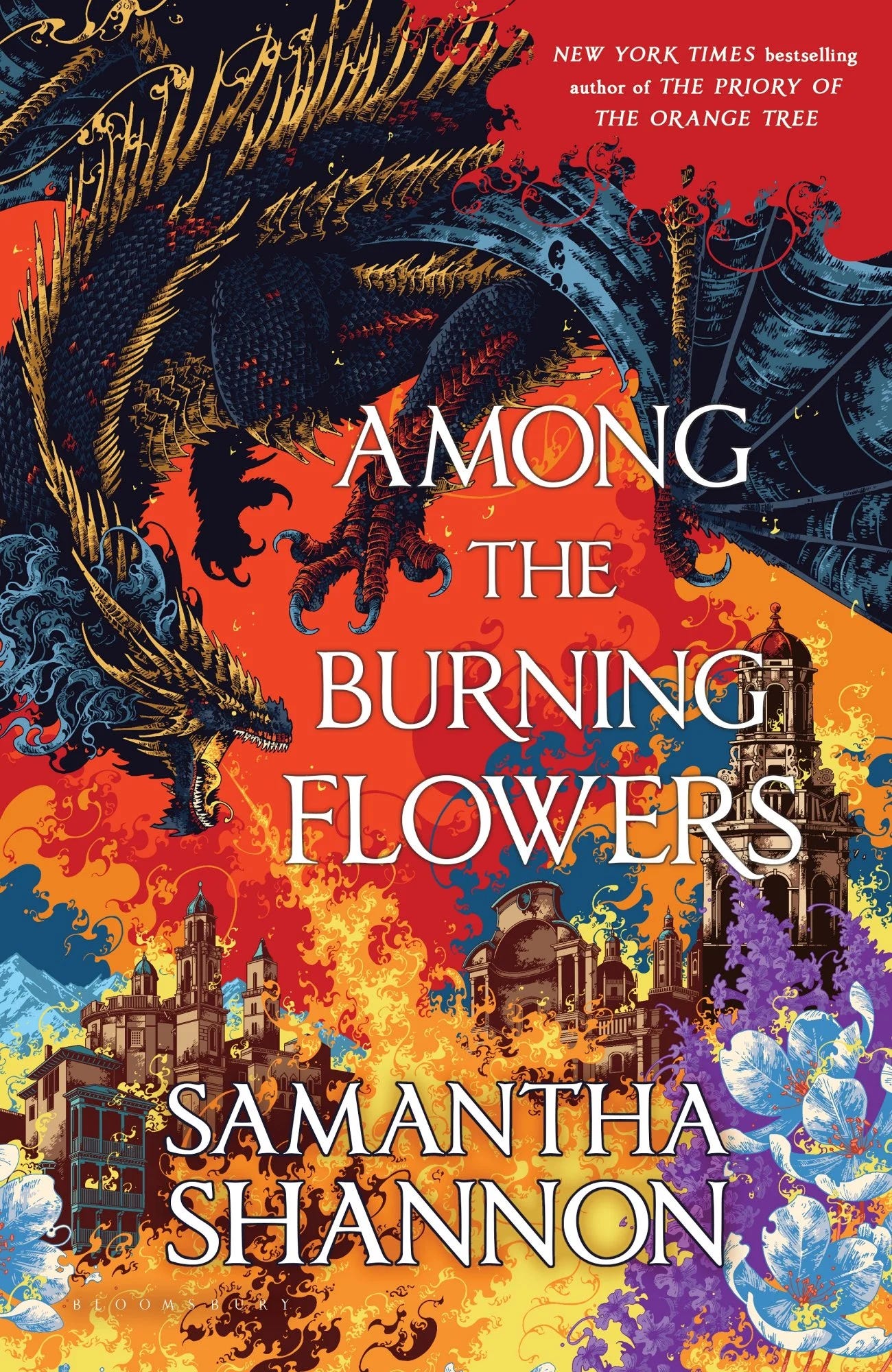
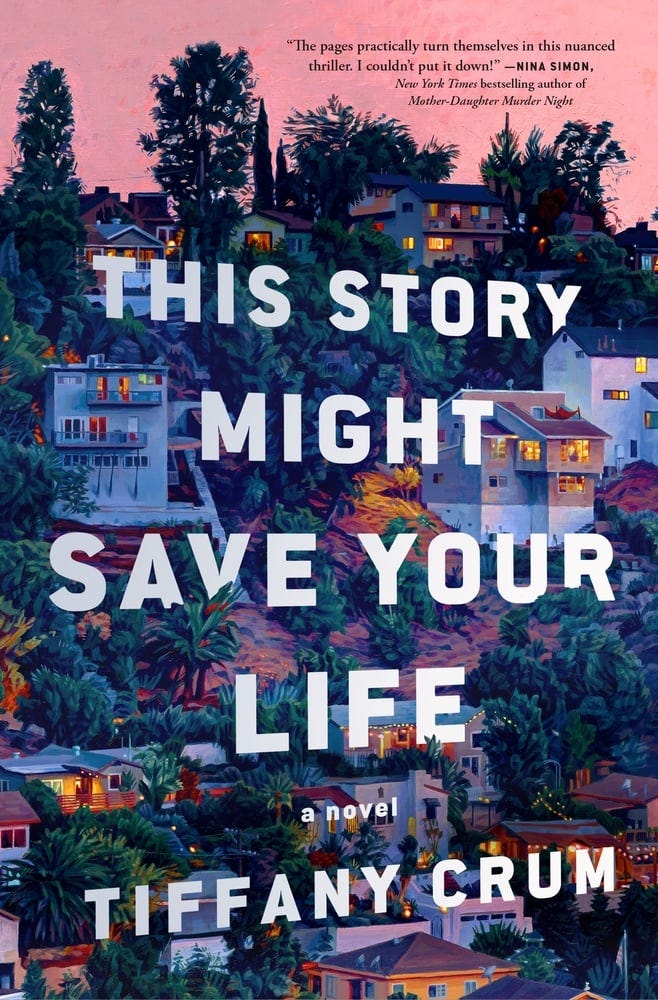

You seemed to be keeping a bit of a low profile recently, but I figured you were just taking it easy over the summer or, at worst, having some back spasms. But food poisoning?! And ending up in the emergency department !? I'll refrain from any jokes about raw oysters. Anyway, I'm glad to hear you're better and feeling up to producing another mammoth newsletter; every one seems longer and more informative than the last.
I'm hoping you haven't given up your plans to visit The Mount later this year. (My copy of "Twilight Sleep" has a stamp indicating it was originally purchased at The Mount's bookstore.) After reading several Edith Wharton novels and reading Hermione Lee's biography, I'm really curious to see how the place looks. If the summer is too unpleasantly hot, a trip in the fall would be fine too. Anyway, take good care of yourself!
Katharine Smyth's memoir -- really more like literary criticism meets memoir and packaged in what feels like a love letter to both Woolf and Smyth's father -- is spectacular, and I love that you're highlighting it here, Alyssa. I've read it 3 times now, and was somewhat obsessed with it myself as I've always been a lover of all things Woolf, and each time, it only resonates more deeply for me. Thank you for the review!